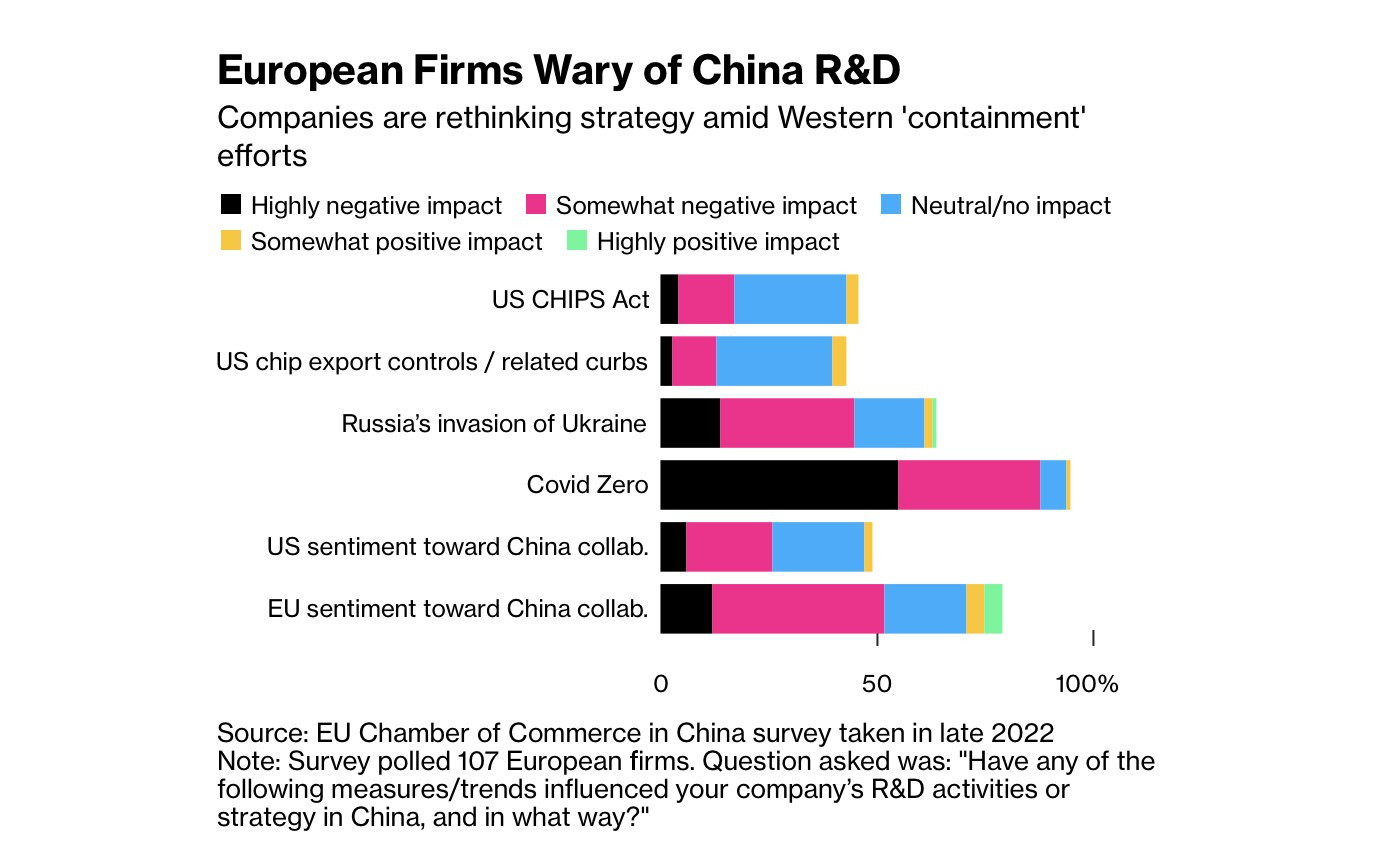A new report from the EU Chamber of Commerce in China shows that foreign companies are hesitant to invest in R&D in the world's second-largest economy , as their local counterparts tend to switch to buying and using products that are made entirely domestically or have no connection to US goods.
“That’s why companies are reluctant to spend money on R&D in the mainland,” said Joerg Wuttke, president of the chamber. “If companies don’t know whether their products will be on the shopping list, say in the next one or two years, they are unlikely to invest in R&D.”
Beijing is now pushing a campaign for technological self-reliance to build a domestic supply chain insulated from external influences.

Volkswagen AG and SAP SE are the largest foreign companies in China, but the companies also face growing competition from domestic giants such as Huawei Technologies as local companies develop in-house alternative software and circuit board solutions.
Meanwhile, state-backed companies like Inspur are stepping up research into areas like servers and cloud computing, betting that domestic consumers will patriotically switch to domestic products.
A survey by the EU Chamber of Commerce found that 52% of respondents said that concerns about cooperation with China had negatively affected their business operations and strategies there, compared to 26% in the US.
Not only that, an interviewee from the information and communications industry said that they were asked by their state-owned enterprise partners to localize technology and R&D in the mainland if they wanted to continue being “Made in China” suppliers.
“Moderate ambition with the Chinese market”
The US-China tech war is not the only political concern for European companies doing business here. About 45% of respondents said the Russia-Ukraine conflict had a negative impact on their operations and strategy.
“The possibility of an escalation of hostilities in Europe or potential tensions in the Taiwan Strait are scenarios that businesses are taking into account,” the EU Chamber of Commerce said in a report. These are potential risks that contribute to a trend “not supporting increased R&D investment in China.”
In contrast to EU businesses, the survey found that multinational corporations plan to “significantly increase” research and development in the mainland by 2024. More than 30% of multinational corporation respondents said they plan to expand.
However, in terms of long-term investment (5 years or more), only 5% of respondents said they would increase spending on R&D in the country.
“That does not necessarily mean that these companies are withdrawing from China, they may be moderating their ambitions for this market,” the study concluded.
The companies surveyed also pointed to several positives in penetrating deeper into the billion-people market, such as the large market size and strong demand. The speed at which R&D is commercialized here is also a bright spot for taking products developed in China and deploying them to other markets.
(According to Bloomberg)
Source































































































Comment (0)